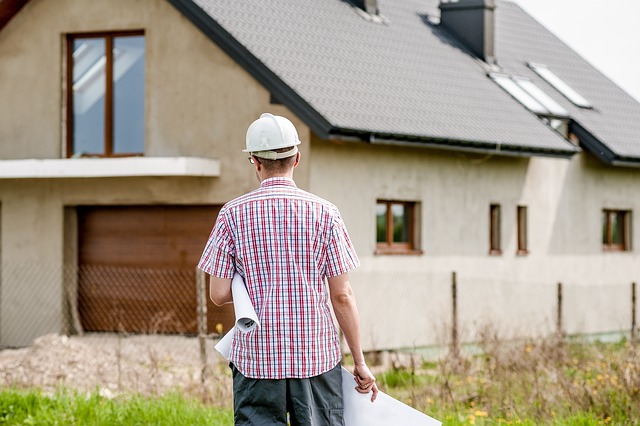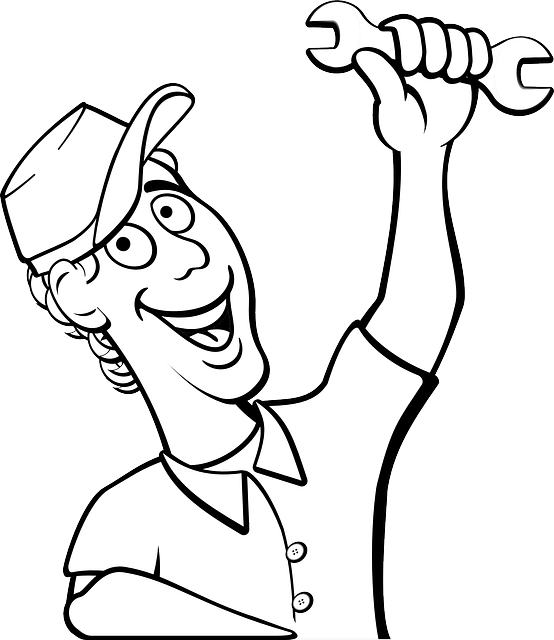Understanding HVAC systems is crucial for effective Home Repair and Maintenance. These systems regulate indoor temperatures through heating, cooling, and ventilation components, with options like fuel furnaces, electric heat pumps, central air conditioners, and mini-splits. Regular maintenance, including filter changes, inspections, cleaning, and tune-ups by experts, optimizes performance, enhances energy efficiency, extends system lifespan, and prevents costly breakdowns. Proactive care through routine checks and basic troubleshooting ensures a smooth, efficient, and safe operating system year-round.
In the realm of home comfort, efficient heating and cooling systems are non-negotiable. Understanding your HVAC (Heating, Ventilation, and Air Conditioning) system is key to effective home repair and maintenance. This intricate network keeps your living space comfortable year-round. This article guides you through the complexities of HVAC systems, provides essential tips for regular maintenance, and offers practical solutions when repairs are necessary, ensuring your home remains a haven of comfort.
- Understanding HVAC Systems: Unveiling the Complexities of Home Heating and Cooling
- The Art of Proper Maintenance: Keeping Your HVAC System in Top Shape
- When Repairs are Necessary: Troubleshooting Common Issues and Effective Solutions
Understanding HVAC Systems: Unveiling the Complexities of Home Heating and Cooling

Understanding HVAC systems is essential for anyone looking into home repair and maintenance. These intricate networks of equipment, ductwork, and thermostats work harmoniously to regulate indoor temperatures, ensuring comfort year-round. At its core, a Heating, Ventilation, and Air Conditioning (HVAC) system involves three main components: heating, cooling, and ventilation.
Heating systems can range from furnaces that burn fuel to electric heat pumps that transfer thermal energy. Cooling systems, on the other hand, might include central air conditioners or more efficient alternatives like ductless mini-splits. Ventilation maintains indoor air quality by removing stale air and introducing fresh outdoor air. Regular maintenance, including filter changes, cleaning, and inspections, is crucial for keeping these systems running optimally, ensuring energy efficiency, and prolonging their lifespan.
The Art of Proper Maintenance: Keeping Your HVAC System in Top Shape

Proper maintenance is the cornerstone of any successful HVAC system. Regular cleaning, inspection, and tune-ups are essential to ensure optimal performance and longevity. By addressing potential issues early on, homeowners can avoid costly breakdowns and benefit from enhanced energy efficiency. A well-maintained HVAC unit not only improves indoor comfort but also reduces utility bills, making it a wise investment in home repair and maintenance.
Expert technicians employ meticulous strategies to maintain these systems, including changing filters, lubricating moving parts, and calibrating thermostats. These routine practices mitigate wear and tear, ensuring the HVAC system operates at peak efficiency. Furthermore, regular maintenance provides homeowners with valuable insights into their system’s health, enabling proactive decision-making for future repairs or upgrades, thereby streamlining home repair and maintenance processes.
When Repairs are Necessary: Troubleshooting Common Issues and Effective Solutions

When it comes to HVAC (Heating, Ventilation, and Air Conditioning) systems, regular maintenance is key to ensuring optimal performance and longevity. However, even with diligent care, repairs may be necessary. Identifying common issues early on can prevent major breakdowns and costly replacements. Homeowners should familiarize themselves with basic troubleshooting techniques for their HVAC units.
Start by checking the filter for dirt or debris buildup, as a dirty filter can restrict airflow and reduce efficiency. Replace it if needed. Inspect visible components for any damage or wear, such as frayed wires or loose connections, and address these issues promptly to prevent safety hazards and further complications. If you notice unusual noises, temperature variations, or poor air quality, these could indicate problems with the compressor, fan motor, or ductwork. In such cases, contacting a professional HVAC technician for a thorough inspection is advisable. Effective home repair and maintenance practices empower homeowners to keep their systems running smoothly and efficiently all year round.
Proper HVAC maintenance and repair are essential components of home repair and maintenance. By understanding the intricacies of these systems, performing regular upkeep, and addressing issues promptly, homeowners can ensure efficient heating and cooling year-round. This holistic approach not only extends the lifespan of your HVAC equipment but also contributes to a comfortable and energy-efficient living environment.
